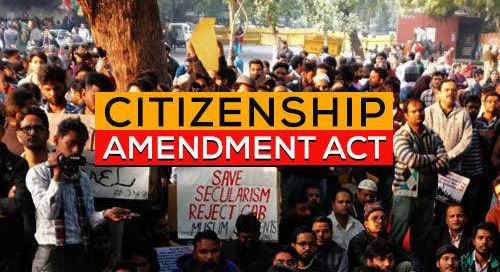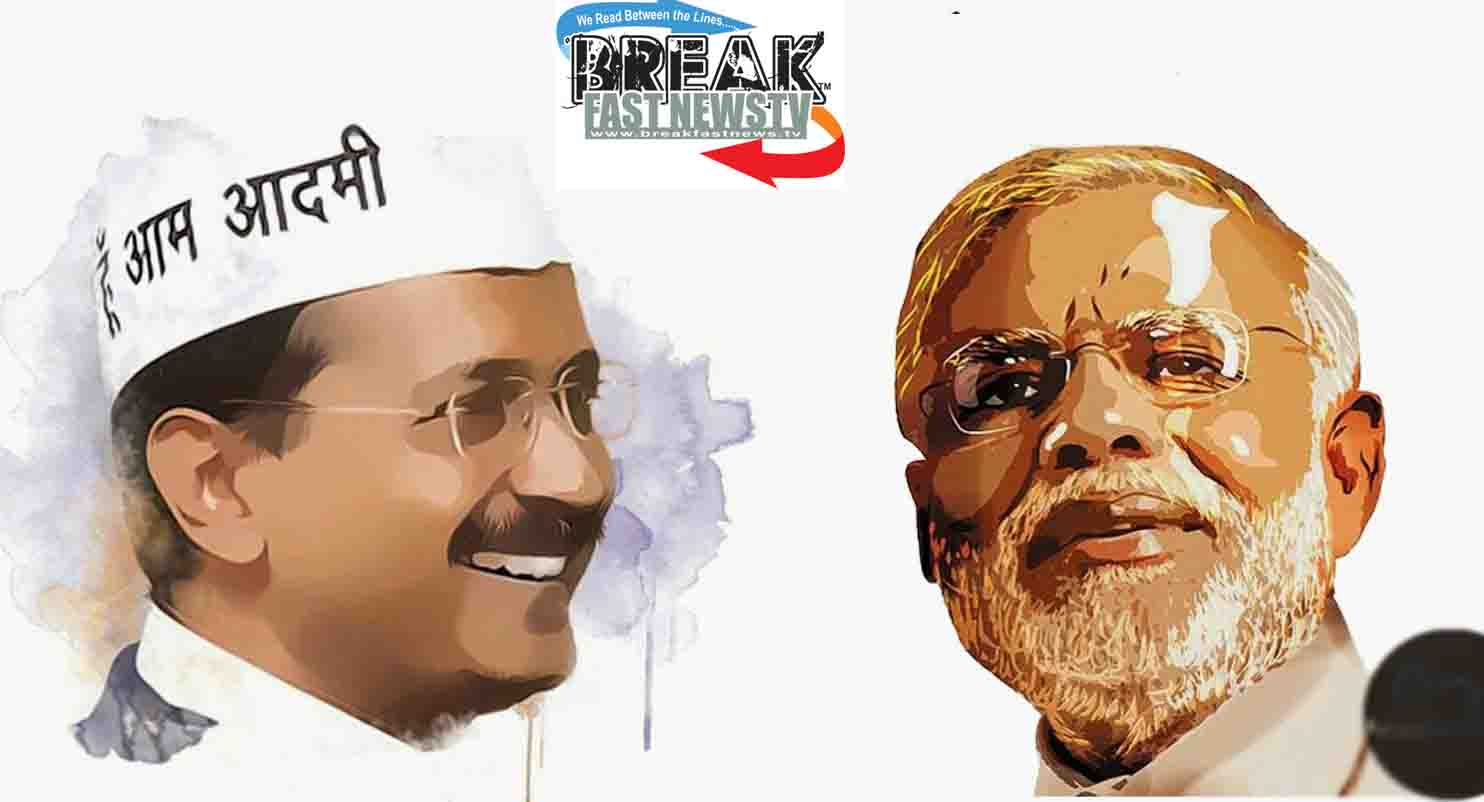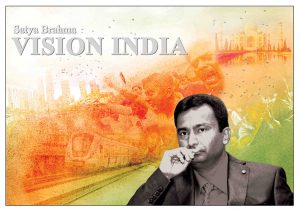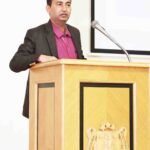

The Minister of Home Affairs introduced the Citizenship (Amendment) Bill, 2019 today in Lok Sabha. It is scheduled to be taken up for discussion and passing by the House later today. The Bill amends the Citizenship Act, 1955, and seeks to make foreign illegal migrants of certain religious communities coming from Afghanistan, Bangladesh, and Pakistan eligible for Indian citizenship. In this blog, we look at the criteria for determining citizenship in India, discuss how the Bill proposes to change the criteria, and highlight other key changes proposed by the Bill.
How is citizenship acquired in India?
In India, citizenship is regulated by the Citizenship Act, 1955. The Act specifies that citizenship may be acquired in India through five methods – by birth in India, by descent, through registration, by naturalisation (extended residence in India), and by incorporation of territory into India. [1]
Can illegal migrants acquire citizenship?
An illegal migrant is prohibited from acquiring Indian citizenship. An illegal immigrant is a foreigner who either enters India illegally, i.e., without valid travel documents, like a visa and passport, or enters India legally, but stays beyond the time period permitted in their travel documents. An illegal migrant can be prosecuted in India, and deported or imprisoned.
In September 2015 and July 2016, the central government exempted certain groups of illegal migrants from being imprisoned or deported. [2] These are illegal migrants who came into India from Afghanistan, Bangladesh, or Pakistan on or before December 31, 2014, and belong to the Hindu, Sikh, Buddhist, Jain, Parsi, or Christian religious communities.
How does the Bill seek to change the criteria for determining citizenship?
The Bill proposes that the specified class of illegal migrants from the three countries will not be treated as illegal migrants, making them eligible for citizenship. On acquiring citizenship, such migrants shall be deemed to be Indian citizens from the date of their entry into India and all legal proceedings regarding their status as illegal migrants or their citizenship will be closed.
The Act allows a person to apply for citizenship by naturalisation, if the person meets certain qualifications. One of the qualifications is that the person must have resided in India or been in central government service for the last 12 months and at least 11 years of the preceding 14 years. For the specified class of illegal migrants, the number of years of residency has been relaxed from 11 years to five years.
Are the provisions of the Bill applicable across the country?
The Bill clarifies that the proposed amendments on citizenship to the specified class of illegal migrants will not apply to certain areas. These are: (i) the tribal areas of Assam, Meghalaya, Mizoram, and Tripura, as included in the Sixth Schedule to the Constitution, and (ii) the states regulated by the “Inner Line” permit under the Bengal Eastern Frontier Regulations 1873. These Sixth Schedule tribal areas include Karbi Anglong (in Assam), Garo Hills (in Meghalaya), Chakma District (in Mizoram), and Tripura Tribal Areas District. Further, the Inner Line Permit regulates visit of all persons, including Indian citizens, to Arunachal Pradesh, Mizoram, and Nagaland.
Is the differentiation among the specified class of illegal migrants and all other illegal migrants reasonable?
The Bill makes only certain illegal migrants eligible for citizenship. These are persons belonging to the six specified religious communities, from the three specified countries, who entered India on or before December 31, 2014, and do not reside in the Sixth Schedule areas or in the states regulated by the Inner Line Permit states. This implies that all other illegal migrants will not be able to claim the benefit of citizenship conferred by the Bill, and may continue to be prosecuted as illegal migrants. Any provision which distinguishes between two groups may violate the standard of equality guaranteed under Article 14 of the Constitution, unless one can show a reasonable rationale for doing so. [3] The Bill provides differential treatment to illegal migrants on the basis of (a) their country of origin, (b) religion, (c) date of entry into India, and (d) place of residence in India. The question is whether these factors serve a reasonable purpose to justify the differential treatment. We examine this below.
The Bill classifies migrants based on their country of origin to include only Afghanistan, Pakistan and Bangladesh. While the Statement of Objects and Reasons (SoR) in the Bill reasons that millions of citizens of undivided India were living in Pakistan and Bangladesh, no reason has been provided to explain the inclusion of Afghanistan. The SoR also states that these countries have a state religion, which has resulted in religious persecution of minority groups. However, there are other countries which may fit this qualification. For instance, two of India’s neighboring countries, Sri Lanka (Buddhist state religion) [4] and Myanmar (primacy to Buddhism) [5], have had a history of persecution of Tamil Eelams (a linguistic minority in Sri Lanka), and the Rohingya Muslims, respectively. [6], [7], [8]
Further, there are other religious minorities from Pakistan, Afghanistan and Bangladesh, such as the Ahmadiyya Muslims in Pakistan (considered non-Muslims in that country) [9], and atheists in Bangladesh [10] who have faced religious persecution and may have illegally migrated to India. Given that the objective of the Bill is to provide citizenship to migrants escaping from religious persecution, it is not clear why illegal migrants belonging to other neighbouring countries, or belonging to religious minorities from these three specified countries, have been excluded from the Bill.
The Bill also creates further differentiation between the specified class of illegal migrants based on when they entered India (before or after December 31, 2014), and where they live in India (provisions not applicable to Sixth Schedule and Inner Line Permit areas). However, the reasons provided to explain the distinction is unclear. Note that certain restrictions apply to persons (both citizens and foreigners) in the Sixth Schedule areas and in the states regulated by the Inner Line Permit. Once an illegal migrant residing in these areas acquires citizenship, he would be subject to the same restrictions in these areas, as are applicable to other Indian citizens. Therefore, it is unclear why the Bill excludes illegal migrants residing in these areas.
How does the Bill change the regulations for Overseas Citizens of India?
The Bill also amends the provisions on registration of Overseas Citizens of India (OCI). OCI cardholders are foreigners who are persons of Indian origin. For example, they may have been former Indian citizens, or children of current Indian citizens. An OCI enjoys benefits such as the right to travel to India without a visa, or to work and study here. At present, the government may cancel a person’s OCI registration on various grounds specified in the Act. In case of a cancellation, an OCI residing in India may be required to leave the country. The Bill adds another ground for cancelling OCI registration — violation of any law notified by the central government. However, the Bill does not provide any guidance on the nature of laws which the central government may notify. The Supreme Court has noted that this guidance is necessary to set limits on the authority’s powers and to avoid any arbitrariness in exercise of powers. [11] Therefore, the powers given to the government under the Bill may go beyond the permissible limits of valid delegation.
Note: The blog has been updated to remove the following issue: “Second, the Bill delegates the power to notify laws and not offences. This may result in the cancellation of OCI for minor violations. For instance, the government may want to cancel the registration of an OCI who is found guilty of sedition, under the Indian Penal Code, 1861. However, since the government cannot notify one offence, it will need to notify the entire Indian Penal Code, which would include minor offences such as rash and negligent driving.”
[1]. Section 2(1)(b) of the Citizenship Act, 1955.
[2]. State of West Bengal vs Anwar Ali Sarkar, AIR 1952 SC 75.
[3]. State of West Bengal vs Anwar Ali Sarkar, AIR 1952 SC 75.
[4]. Article 9 of the Constitution of the Democratic Socialist Republic of Sri Lanka states: “The Republic of Sri Lanka shall give to Buddhism the foremost place and accordingly it shall be the duty of the State to protect and foster the Buddha Sasana, while assuring to all religions the rights granted by Articles 10 and 14(1)(e).”
[5]. Articles 361 and 362 of the Constitution of the Republic of the Union of Myanmar state the following. “361. The Union recognizes special position of Buddhism as the faith professed by the great majority of the citizens of the Union. 362. The Union also recognizes Christianity, Islam, Hinduism and Animism as the religions existing in the Union at the day of the coming into operation of this Constitution.”
[6]. It is estimated that there are over a lakh Sri Lankan refugees in India, two-thirds of them in government camps. See https://timesofindia.indiatimes.com/city/chennai/why-lankan-refugees-are-reluctant-to-go-back-home/articleshow/65591130.cms
[7]. “Myanmar Rohingya: What you need to know about the crisis”, BBC News, April 24, 2018, https://www.bbc.com/news/world-asia-41566561.
[8]. “Why India is refusing refuge to Rohingyas”, Times of India, September 6, 2017, https://timesofindia.indiatimes.com/india/why-india-is-refusing-refuge-to-rohingyas/articleshow/60386974.cms.
[9]. The Second Amendment to the Constitution of Pakistan passed in 1974 effectively declared Ahmaddiyas as non-Muslims.
[10]. For example, see https://www.theguardian.com/world/2016/jun/11/bangladesh-murders-bloggers-foreigners-religion.
[11]. Hamdard Dawakhana and Anr., v. The Union of India (UOI) and Ors., AIR1960SC554; Confederation of Indian Alcoholic Beverage Companies and Ors. vs. The State of Bihar and Ors., 2016(4) PLJR369.
The Citizenship Act, 1955 regulates who may acquire Indian citizenship and on what grounds. A person may become an Indian citizen if they are born in India or have Indian parentage or have resided in the country for a period of time, etc. However, illegal migrants are prohibited from acquiring Indian citizenship. An illegal migrant is a foreigner who: (i) enters the country without valid travel documents, like a passport and visa, or (ii) enters with valid documents, but stays beyond the permitted time period.[1]
Illegal migrants may be imprisoned or deported under the Foreigners Act, 1946 and the Passport (Entry into India) Act, 1920. The 1946 and the 1920 Acts empower the central government to regulate the entry, exit and residence of foreigners within India. In 2015 and 2016, the central government issued two notifications exempting certain groups of illegal migrants from provisions of the 1946 and the 1920 Acts.[2] These groups are Hindus, Sikhs, Buddhists, Jains, Parsis and Christians from Afghanistan, Bangladesh and Pakistan, who arrived in India on or before December 31, 2014.2 This implies that these groups of illegal migrants will not be deported or imprisoned for being in India without valid documents.
In 2016, a Bill was introduced to amend the Citizenship Act, 1955.[3] The Bill sought to make illegal migrants belonging to these six religions and three countries eligible for citizenship and made some changes in the provisions on registration of Overseas Citizens of India (OCI) cardholders. It was referred to a Joint Parliamentary Committee, which submitted its report on January 7, 2019.[4] The Bill was passed by Lok Sabha on January 8, 2019.[5] However, it lapsed with the dissolution of the 16th Lok Sabha. Subsequently, the Citizenship (Amendment) Bill, 2019 is being introduced in Lok Sabha in December 2019.
The 2019 Bill seeks to make illegal migrants who are Hindus, Sikhs, Buddhists, Jains, Parsis and Christians from Afghanistan, Bangladesh and Pakistan, eligible for citizenship. It exempts certain areas in the North-East from this provision. The Bill also makes amendments to provisions related to OCI cardholders. A foreigner may register as an OCI under the 1955 Act if they are of Indian origin (e.g., former citizen of India or their descendants) or the spouse of a person of Indian origin. This will entitle them to benefits such as the right to travel to India, and to work and study in the country. The Bill amends the Act to allow cancellation of OCI registration if the person has violated any law notified by the central government.
Table 1 below compares the provisions of the 2016 Bill (as passed by Lok Sabha) with that of the 2019 Bill.
Table 1: Comparison of the Citizenship (Amendment) Bill, 2016, as passed by Lok Sabha, with the Citizenship (Amendment) Bill, 2019
The Citizenship (Amendment) Bill, 2016 (as passed by Lok Sabha)
Citizenship (Amendment) Bill 2019
Eligibility for citizenship for certain illegal migrants: The Act prohibits illegal migrants from acquiring Indian citizenship. Illegal migrants are foreigners who enter India without a valid passport or travel document, or stay beyond the permitted time.
The Bill amended the Act to provide that Hindus, Sikhs, Buddhists, Jains, Parsis and Christians from Afghanistan, Bangladesh and Pakistan will not be treated as illegal migrants. In order to get this benefit, they must have also been exempted from the Foreigners Act, 1946 and the Passport (Entry into India) Act, 1920 by the central government. The 1920 Act mandates foreigners to carry passport, while the1946 Act regulates the entry and departure of foreigners in India.
The Bill further stated from the date of its enactment, all legal proceedings pending against such an illegal migrant will be closed.
The Bill adds two additional provisions on citizenship to illegal migrants belonging to these religions from the three countries.
Consequences of acquiring citizenship: The Bill says that on acquiring citizenship: (i) such persons shall be deemed to be citizens of India from the date of their entry into India, and (ii) all legal proceedings against them in respect of their illegal migration or citizenship will be closed.
Exception: Further, the Bill adds that the provisions on citizenship for illegal migrants will not apply to the tribal areas of Assam, Meghalaya, Mizoram, or Tripura, as included in the Sixth Schedule to the Constitution. These tribal areas include Karbi Anglong (in Assam), Garo Hills (in Meghalaya), Chakma District (in Mizoram), and Tripura Tribal Areas District. It will also not apply to the areas under the Inner Line” under the Bengal Eastern Frontier Regulation, 1873. The Inner Line Permit regulates visit of Indians to Arunachal Pradesh, Mizoram, and Nagaland.
Citizenship by naturalisation: The Act allows a person to apply for citizenship by naturalisation, if the person meets certain qualifications. One of the qualifications is that the person must have resided in India or been in central government service for the last 12 months and at least 11 years of the preceding 14 years.
The Bill created an exception for Hindus, Sikhs, Buddhists, Jains, Parsis and Christians from Afghanistan, Bangladesh and Pakistan, with regard to this qualification. For these groups of persons, the 11 years’ requirement will be reduced to six years.
The Bill further reduces the period of naturalisation for such group of persons from six years to five years.
Grounds for cancelling OCI registration: The Act provides that the central government may cancel registration of OCIs on five grounds including registration through fraud, showing disaffection to the Constitution, engaging with the enemy during war, necessity in the interest of sovereignty of India, security of state or public interest, or if within five years of registration the OCI has been sentenced to imprisonment for two years or more. The Bill added one more ground for cancelling registration, that is, if the OCI has violated any law that is in force in the country.
When the Bill was passed in Lok Sabha, this was amended to limit the disqualification to violations of the Citizenship Act or of any other law so notified by the central government. Also, the cardholder has to be given an opportunity to be heard.
Same as the 2016 Bill passed by Lok Sabha.
Sources: The Citizenship (Amendment) Bill, 2016, as passed by Lok Sabha; The Citizenship (Amendment) Bill, 2019; PRS.
Issues to consider
Whether differentiating on grounds of religion is a violation of Article 14
The Bill provides that illegal migrants who fulfil four conditions will not be treated as illegal migrants under the Act. The conditions are: (a) they are Hindus, Sikhs, Buddhists, Jains, Parsis or Christians; (b) they are from Afghanistan, Bangladesh or Pakistan; (c) they entered India on or before December 31, 2014; (d) they are not in certain tribal areas of Assam, Meghalaya, Mizoram, or Tripura included in the Sixth Schedule to the Constitution, or areas under the “Inner Line” permit, i.e., Arunachal Pradesh, Mizoram, and Nagaland.
Article 14 guarantees equality to all persons, including citizens and foreigners. It only permits laws to differentiate between groups of people if the rationale for doing so serves a reasonable purpose.[6] The question is whether this provision violates the right to equality under Article 14 of the Constitution as it provides differential treatment to illegal migrants on the basis of (a) their country of origin, (b) religion, (c) date of entry into India, and (d) place of residence in India. We examine below whether these differentiating factors could serve a reasonable purpose.
First, the Bill classifies migrants based on their country of origin to include only Afghanistan, Pakistan and Bangladesh. The Statement of Objects and Reasons in the Bill (SoR) states that India has had historic migration of people with Afghanistan, Pakistan and Bangladesh, and these countries have a state religion, which has resulted in religious persecution of minority groups. While the SoR reasons that millions of citizens of undivided India were living in Pakistan and Bangladesh, no reason has been provided to explain the inclusion of Afghanistan.
Further, it is not clear why migrants from these countries are differentiated from migrants from other neighbouring countries such as Sri Lanka (Buddhist state religion)[7] and Myanmar (primacy to Buddhism)[8]. Sri Lanka has had a history of persecution of a linguistic minority in the country, the Tamil Eelams.[9] Similarly, India shares a border with Myanmar, which has had a history of persecution of a religious minority, the Rohingya Muslims.[10] Over the years, there have been reports of both Tamil Eelams and Rohingya Muslims fleeing persecution from their respective countries and seeking refuge in India.[11] Given that the objective of the Bill is to provide citizenship to migrants escaping from religious persecution, it is not clear why illegal migrants belonging to religious minorities from these countries have been excluded from the Bill.
Second, with respect to classification based on religious persecution of certain minorities in Pakistan, Afghanistan and Bangladesh, it may be argued that there are other religious minorities in these countries, who face religious persecution and may have illegally migrated to India. For example, over the years, there have been reports of persecution of Ahmadiyya Muslims in Pakistan (who are considered non-Muslims in that country)[12], and the murder of atheists in Bangladesh.[13] It is unclear why illegal migrants from only six specified religious minorities have been included in the Bill.
Third, it is also unclear why there is a differential treatment of migrants based on their date of entry into India, i.e., whether they entered India before or after December 31, 2014.
Fourth, the Bill also excludes illegal migrants residing in areas covered by the Sixth Schedule, that is, notified tribal areas in Assam, Meghalaya, Mizoram and Tripura. The purpose behind the enactment of the Sixth Schedule of the Constitution was to aid in the development of tribal areas through autonomous councils, while protecting the indigenous population in these areas from exploitation and preserving their distinct social customs.[14] The Bill also excludes the Inner Line Permit areas. Inner Line regulates the entry of persons, including Indian citizens, into Arunachal Pradesh, Mizoram and Nagaland. Once an illegal migrant residing in these areas acquires citizenship, he would be subject to the same restrictions in these areas, as are applicable to other Indian citizens. Therefore, it is unclear why the Bill excludes illegal migrants residing in these areas.
Wide discretion to government to cancel OCI registration
The 1955 Act provides that the central government may cancel the registration of OCIs on various grounds. The Bill adds one more ground for cancelling registration, that is, if the OCI has violated any law notified by the central government. It further states that orders for cancellation of OCI should not be passed till the cardholder is given an opportunity to be heard.
It may be argued that giving the central government the power to prescribe the list of laws whose violation result in cancellation of OCI registration, may amount to an excessive delegation of powers by the legislature. The Supreme Court has held that while delegating powers to an executive authority, the legislature must prescribe a policy, standard, or rule for their guidance, which will set limits on the authority’s powers and not give them arbitrary discretion to decide how to frame the rules.[15] The Bill does not provide any guidance on the nature of laws which the central government may notify. Therefore, in the absence of standards, criteria or principles on the types of laws which may be notified by the government, it may be argued that the powers given to the executive may go beyond the permissible limits of valid delegation.
[1]. Section 2(1)(b) of the Citizenship Act, 1955.
[2]. G.S.R. 685 (E) and G.S.R. 686 (E), Gazette of India, September 7, 2015, http://egazette.nic.in/WriteReadData/2015/165755.pdf; G.S.R. 702(E) and G.S.R. 703(E), Gazette of India, July 18, 2016, http://egazette.nic.in/WriteReadData/2016/170822.pdf.
[3]. The Citizenship (Amendment) Bill, 2016, https://www.prsindia.org/sites/default/files/bill_files/Citizenship_%28A%29_bill%2C_2016_0.pdf.
[4]. Report of the Joint Committee on the Citizenship (Amendment) Bill, 2016, Joint Parliamentary Committee, Lok Sabha, January 7, 2019, https://www.prsindia.org/sites/default/files/bill_files/Joint%20committee%20report%20on%20citizenship%20%28A%29%20bill.pdf..
[5]. The Citizenship (Amendment) Bill, 2016 (As passed by Lok Sabha), https://www.prsindia.org/sites/default/files/bill_files/Citizenship%20%28A%29%20Bill%2C%202019%20as%20passed%20by%20LS.pdf.
[6]. State of West Bengal vs Anwar Ali Sarkar, AIR 1952 SC 75.
[7]. Article 9 of the Constitution of the Democratic Socialist Republic of Sri Lanka states: “The Republic of Sri Lanka shall give to Buddhism the foremost place and accordingly it shall be the duty of the State to protect and foster the Buddha Sasana, while assuring to all religions the rights granted by Articles 10 and 14(1)(e).”
[8]. Articles 361 and 362 of the Constitution of the Republic of the Union of Myanmar state the following. “361. The Union recognizes special position of Buddhism as the faith professed by the great majority of the citizens of the Union. 362. The Union also recognizes Christianity, Islam, Hinduism and Animism as the religions existing in the Union at the day of the coming into operation of this Constitution.”
[9]. It is estimated that there are over a lakh Sri Lankan refugees in India, two-thirds of them in government camps. See https://timesofindia.indiatimes.com/city/chennai/why-lankan-refugees-are-reluctant-to-go-back-home/articleshow/65591130.cms
[10]. “Myanmar Rohingya: What you need to know about the crisis”, BBC News, April 24, 2018, https://www.bbc.com/news/world-asia-41566561.
[11]. “Why India is refusing refuge to Rohingyas”, Times of India, September 6, 2017, https://timesofindia.indiatimes.com/india/why-india-is-refusing-refuge-to-rohingyas/articleshow/60386974.cms.
[12]. The Second Amendment to the Constitution of Pakistan passed in 1974 effectively declared Ahmaddiyas as non-Muslims.
[13]. For example, see https://www.theguardian.com/world/2016/jun/11/bangladesh-murders-bloggers-foreigners-religion.
[14]. Report of the Sub-Committee on North East Frontier (Assam) Tribal and Excluded Areas (Chairperson: Gopinath Bardoloi), July 28, 1947; Constituent Assembly of India Debates, Volume IX, 5th, 6th and 7th September, 1949.
[15]. Hamdard Dawakhana and Anr., v. The Union of India (UOI) and Ors., AIR1960SC554; Confederation of Indian Alcoholic Beverage Companies and Ors. vs. The State of Bihar and Ors., 2016(4) PLJR369.


















